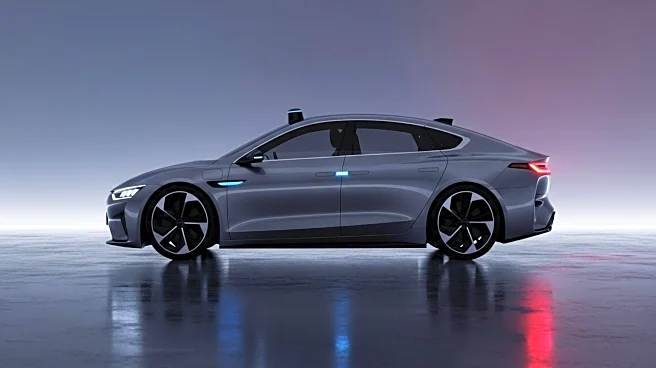What's Happening?
Tesla has settled a legal case involving a fatal accident attributed to its self-driving technology. The settlement comes as Tesla emphasizes its future growth strategy centered around Robotaxis and autonomous vehicles. The case involved the family of a 15-year-old boy who died in a collision with a Tesla self-driving car in San Francisco. This settlement follows a recent Florida jury verdict that ordered Tesla to pay $243 million in damages for another fatal accident involving its self-driving technology. These legal challenges highlight the ongoing concerns about the reliability and safety of Tesla's autonomous systems. Despite these issues, Tesla continues to push forward with its plans to expand its Robotaxi services across the United States.
Why It's Important?
The settlement and ongoing legal challenges underscore the critical importance of safety and reliability in the development of autonomous vehicles. As Tesla aims to lead the market with its self-driving technology, addressing these concerns is vital to gaining regulatory approval and consumer trust. The legal outcomes could influence public perception and regulatory scrutiny, impacting Tesla's ability to deploy its Robotaxi services widely. The company's focus on autonomous technology is a key component of its growth strategy, and resolving safety-related issues will be essential for its long-term success.
What's Next?
Tesla is likely to face increased regulatory scrutiny and public attention as it continues to develop and deploy its self-driving technology. The company may need to enhance its safety measures and address the concerns raised by recent legal cases. As Tesla works towards expanding its Robotaxi services, it will need to navigate the complexities of regulatory approvals and public acceptance. The outcomes of ongoing legal and regulatory proceedings will be crucial in shaping Tesla's future in the autonomous vehicle market.
Beyond the Headlines
The legal challenges faced by Tesla highlight broader ethical and safety considerations in the autonomous vehicle industry. The reliance on camera-based systems without additional sensors like lidar raises questions about the adequacy of current safety measures. As the industry evolves, balancing innovation with safety and ethical responsibility will be critical. Tesla's approach to these challenges could set precedents for other companies in the autonomous vehicle space.









